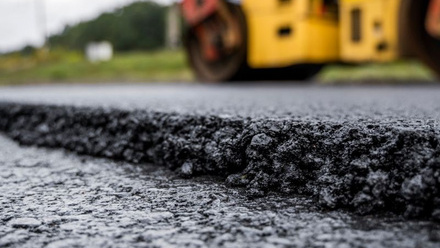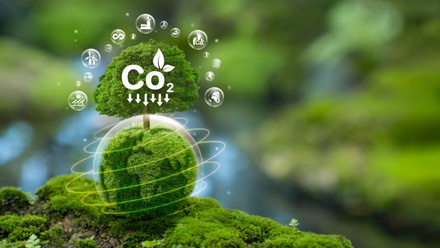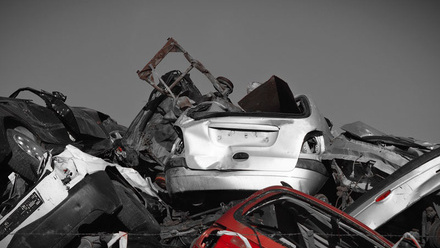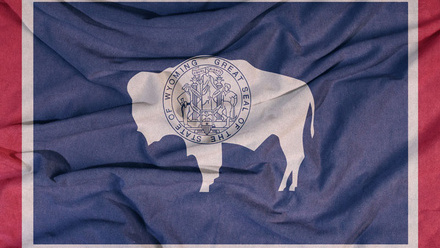Case for global learning – a pathway to responsible mining?
The initiative calls for learning about the wider world to be higher profile across education.
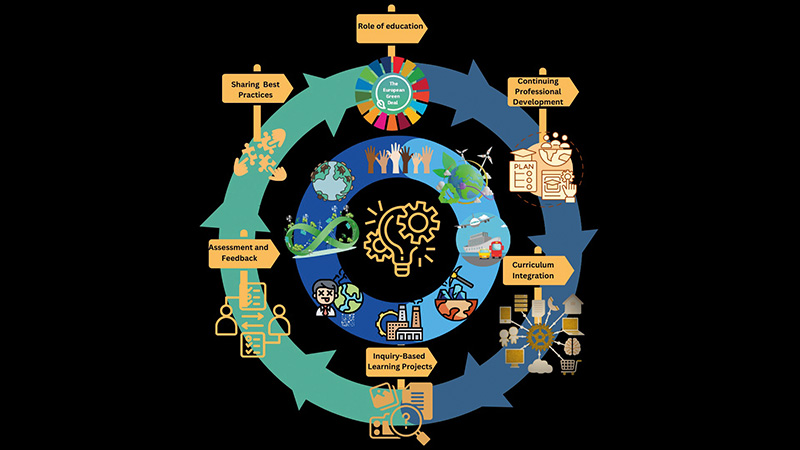
The Global Learning Pathway stems from the work of VECTOR, a Horizon European research project that aims to tackle the social, environmental and technical challenges in mining critical raw materials in Europe.
VECTOR’s research, involving 18 European partners, aims to investigate potential solutions and propose pathways towards sustainable, responsible mineral exploration in Europe.
One of the resulting pathways is on Global Learning, developing a collection of resources for educators to use when exploring 'contentious topics' within educational settings.
The pathway has been designed to highlight the role of education in achieving the EU Green Deal, as well as a guide for educators interested in empowering students to become informed and proactive global citizens.
Featuring two rings (see image above), the inner ring illustrates the complexities of integrating critical sustainability issues into education, while the outer ring offers practical strategies for educators to navigate these challenges, accessed through clicking on each of the signposts on the pathway’s website.
The EU Green Deal targets net-zero by 2050 and aims to reduce net greenhouse gas emissions by at least 55% by 2030.
The VECTOR project identifies that 'to move forwards with the EU Green Deal, we must understand society’s perception of the extraction of critical raw materials from the Earth. Research within VECTOR will assess how individuals balance the ethical, social, economic, political and environmental consequences of sourcing critical raw materials. The aim of this is to understand how values impact attitudes, decisions and acceptance of policy', and engender a shared value in minerals exploration.
It notes that recycling alone will not supply enough materials for the EU to reach its climate goals and wants to keep the 'often overlooked and under-appreciated general public' informed along the way.
Mining young minds for greater understanding
Sazani, a not-for-profit NGO, has been working on the education pathway for VECTOR and exploring the perception of mining as a contentious issue without a wider understanding of the technology it enables. The organisation has been researching how educators can support students to have a deliberative dialogue about mining.
By aligning inquiry-based learning to science, VECTOR says educators can foster dynamic and interactive learning with more active students. This includes open-ended questions and gathering information from various sources, which helps students develop information literacy and understand the complexity of real-world issues.
Sazani’s Founding Director, Dr Cathryn MacCallum FIMMM, highlights the negative press around how critical raw materials are sourced, noting Europe’s desire to be less dependent on countries like China or the Democratic Republic of Congo.
She also passionately expounds the need for materials if society wants wind and wave power. 'We’re not saying mining is good, we’re not saying mining is bad. We are saying, there is a need for these minerals – where do they come from? Where should they come from? Are there alternatives? Discuss.'
MacCallum explains that they have been working with teachers to build their confidence and competence to look at the resourcing of carbon net-zero or the EU Green Deal.
To that end, Sazani has partnered with the UK-based Global Learning Network, a national partnership of local development education centres that launched in July this year. It aims to promote the global learning approach, and have wide-ranging benefits for teachers and learners to discuss interconnected issues in a structured way. Up until 2010, schools were resourced to explore the local and global dimensions of a topic, MacCallum says. This has reduced over time.
She also highlights the contrast in spending on advertising between mining and other sectors like the alcohol industry, to illustrate how negative mining stories fill the vacuum of news.
She thinks the sector doesn’t always help itself, saying that mining companies often give up trying to persuade those who don’t immediately understand where they are coming from.
Sazani is also producing guidance for EU policymakers and regulators via VECTOR. 'If the mining sector wants to be accepted, the first thing it’s got to do is take notions of trust and transparency seriously,' advises MacCallum.


